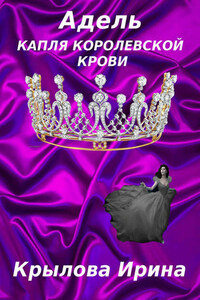CHAPTER I
THE COMING OF KATHARINE HARCOMB
The history which I propose writing will, I believe, be of value for various reasons. It will clear my name from various aspersions, and it will enable me to explain what, to many, seem events of an extraordinary nature. For I have done nothing which makes me fear the light, neither have I any desire to offer excuses for the actions which shall be here set down. What I have done I have done in good faith, knowing all the time of the probable results which would follow.
Moreover, I think it is well that many of the happenings of the time of which I write should be recorded, for surely the days of my youth were strange days, full of intrigue, full of mystery; and more, they were days in which one of the greatest battles ever known in our country was fought, a battle which had momentous issues in the life of our people.
Not that I am able to give a description of many events which took place. That would be impossible; but as I was drawn, in spite of myself as it seems to me, to be an actor in many stirring scenes, I have had peculiar opportunities for knowing the truth. In addition to this, I was trained by my father to follow the custom of the times, and to describe in a diary an account of my daily doings. I shall therefore be able, if ever my memory fails me, to refer to the books which have been carefully kept, and thus place a correct account of matters before those who happen to read.
I had a peculiar training even for youths of that period. For from the time of Archbishop Laud to the coming of King Charles II, nearly every family of note took sides in the great struggle through which the nation passed. Either a man was a Royalist or a Parliamentarian, a believer in the supreme and unquestionable rights of the king, or a supporter of the new order of things. There seemed no half-way house wherein a man might rest. Thus the nation was divided into two great camps, and if one was not in one of these camps he was in the other. But I was trained to hold myself aloof from both, and to distrust them equally.
The reason for this can be quickly told. During the great struggle between Cromwell and the king, my father fought against the Ironside General. Indeed, he gave of his substance freely. He impoverished himself to replenish the king's coffers, and he armed his family retainers in order to keep him on the throne. In the early days of the war, moreover, he was an enthusiastic supporter of the king, and trusted in his royal words implicitly. But after the Battle of Naseby, when the king's papers were taken, and it was made known that Charles had deceived on every hand, my father lost faith in him, and declared he would never trust a king's word again. Not that he threw in his lot with Cromwell, thus following the example of many others. Rather he cut himself adrift from public affairs, and sought to live in seclusion.
But here a difficulty faced him. His resources were much diminished by what he had devoted to the king's cause, and added to this, so much of his property was taken from him in the troublous days which followed, that while he still kept the old home near Epping Forest, he was scarce able to maintain it. He was a country gentleman, bearing an old name, who could barely afford to keep the horse he rode, or the servants who waited at his tables. This (for my father was a very proud man) embittered him much, and caused him to lose faith in friend and foe alike. He despised the king who had deceived both his followers and those who fought against him, and he spoke of the Presbyterians and Independents as a crack-brained and sour-faced crew, who would make the country a place unfit for a gentleman to live in.
"I trust neither of them, my son," he would often say to me. "I gave my blood and my fortune to the king, and he deceived me by lying promises and false statements: as for this Puritan crew, they have robbed me of my possessions until I, who at the time of the Short Parliament was a rich man, have not the means of giving my only son either a good horse to ride, or money to put in his purse."
"I will gain both, father," I said, for in those days I was ardent and hopeful, believing that everything was possible to a brave heart and a strong arm.
"But how?" cried my father. "The king's cause is dead, even if it would have benefited thee by fighting for it. As for these canting Puritans, no man can gain aught from them, unless he will quote Scripture, and cry 'Down with the Prayer-book.' In truth there is no cause which an honourable man can espouse, and thus carve his way to fortune."
"The opportunity will come some day," I replied confidently.
My father shook his head. "It cannot be," he said. "England is governed by canting hypocrites, and there is not a man in the country whom we can trust. I tell thee Roland, I am sorely grieved for thee. I have no fortune to give thee, neither are there means whereby a man bearing the name of Rashcliffe can honourably win one. Marriage seems impossible. Not one maid do I know, who would wed a penniless lad like thee; by that I mean a maid of family and dowry. I am known among men as penniless Rashcliffe, and such a name makes it impossible for my son to make a suitable marriage."












